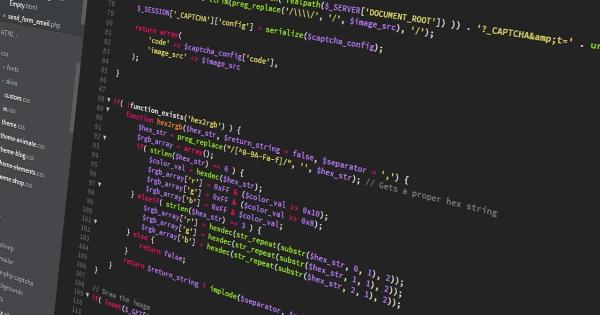As parents, we all want to ensure that our children have the best possible start in life. We want them to develop physically, emotionally, socially, and cognitively according to their age.
However, some children may experience developmental delays, which can affect their progress and potential. Some parents may not know what to look for or how to recognize the signs of a developmental delay until it is too late.
What are Developmental Delays?
Developmental delays are a type of child development disorder that affects a child’s ability to reach typical milestones at the expected time.
These delays can arise from various factors such as genetic disorders, neurological damage, traumatic events, and environmental factors. Developmental delays can impact a child’s physical, cognitive, communication, and social-emotional growth.
Types of Developmental Delays
Developmental delays can be classified into several categories according to the type of delay that affects a child:.
Physical Delays
Physical delays can involve delays in motor development, such as crawling, walking, or fine motor skills like self-feeding and writing.
Physical delays can be caused by problems with muscle tone, vision or hearing deficits, and neurological or developmental disorders.
Cognitive Delays
Cognitive delays can involve delays in the development of thinking, problem-solving, memory skills, and language acquisition.
Cognitive delays can be caused by genetic factors or neurological damage caused by a traumatic brain injury, stroke or other medical conditions.
Communication Delays
Communication delays can involve delays in language development, including expressive language, receptive language, and social communication skills such as eye contact, turn-taking, and joint attention.
Communication delays can be caused by hearing loss, autism spectrum disorder, intellectual disability, or other genetic disorders.
Social-Emotional Delays
Social-emotional delays can involve delays in the development of social skills, emotional regulation, and behavior. Social-emotional delays can be caused by trauma, abuse, neglect, autism spectrum disorder, or other emotional and behavioral disorders.
Signs of Developmental Delays
It is important to note that every child develops at their own pace. However, if you notice that your child is experiencing a delay in one or more developmental areas, it may be time to consult your pediatrician or a developmental specialist.
Here are some signs that your child may be experiencing a developmental delay:.
: Physical Delay Signs
- Delayed achievement of physical milestones like sitting, standing, and walking
- Absence of crawling or difficulty with crawling
- Persistent drooling or difficulty chewing or swallowing
- Frequent falling or overt clumsiness
- Avoidance of gross motor activities like jumping or running
: Cognitive Delay Signs
- Delayed achievement of cognitive milestones like problem-solving, memory, and reasoning
- Difficulty following directions or understanding concepts
- Lack of curiosity or imagination
- Difficulty with spatial relationships or perceptual skills
- Limited attention span or hyperactivity
: Communication Delay Signs
- Delayed achievement of language milestones like babbling, pointing, and using single words
- Lack of expressive language or difficulty understanding language
- Persistent misuse of pronouns, verbs, or tenses
- Absence of social communication skills like eye contact, turn-taking, and joint attention
- Repetitive or stereotyped language
: Social-Emotional Delay Signs
- Difficulty with emotional regulation or impulse control
- Difficulty with social interaction or building relationships with peers
- Excessive tantrums or aggressive behavior
- Absence of age-appropriate play or imaginative play
- Variability with mood or behavior
Next Steps
If you notice any of these signs of developmental delays in your child, it may be time to consult your pediatrician or a developmental specialist. Early diagnosis and intervention are crucial for the treatment and management of developmental delays.
It is essential to remember that every child is unique, and their development may vary from one child to another. However, if you detect a delay, it is important to address it promptly.
Treatment and Management of Developmental Delays
Treatment and management of developmental delays depend on the type and severity of delay and the causes or contributing factors. The following are some common forms of treatment and management for developmental delays:.
: Physical Delay Treatment
Physical therapy or occupational therapy can help with the development of motor skills, muscle strength, and coordination. Assistive devices like braces, wheelchairs, or special furniture may also be needed to support physical development.
: Cognitive Delay Treatment
Early intervention programs like speech therapy, occupational therapy, and educational therapy can help with the development of cognitive and language skills.
Special education programs like individualized education plans (IEP) or 504 plans in schools can also support cognitive development.
: Communication Delay Treatment
Speech and language therapy can help with the development of language skills, including receptive and expressive language.
Assistive devices like communication boards, sign language, or augmentative and alternative communication (AAC) devices may also be needed to support communication.
: Social-Emotional Delay Treatment
Psychotherapy, behavior therapy, and social skills training can help with the management of social-emotional delays, including emotional regulation, behavior modification, and communication skills.
Conclusion
Developmental delays can occur for various reasons and can affect different developmental areas such as physical, cognitive, communication, and social-emotional.
It is essential for parents to be aware of the signs of developmental delays and seek professional help if they suspect a delay in their child’s development. Early intervention is critical for the treatment and management of developmental delays. It is important to remember that with the right support, every child can reach their full potential.






























